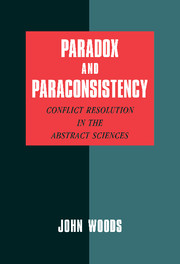4 - Semantic Intuitions
Published online by Cambridge University Press: 05 June 2012
Summary
[A] space is nothing but the verbal substantialisation of mutually compatible spatial relations.
Georges Lechaleas, Étude sur l'Espace et le Temps, 1896INTUITIVE CONCEPTS
We should again call to mind the frequency with which it is claimed by people who do not like it that ex falso is counterintuitive. With some theorists, that is the whole case against ex falso. It is too slender a case, but the reverse mistake is equally bad. It is the mistake of ignoring the near indispensability of intuitions and counterintuitions in the abstract sciences. Let T be any abstract theory – of sets or of truth, for example – for which it is presumed provable that there are no intuitive concepts of its target properties. Then how, with respect to the adjudication of rival accounts of such properties, can appeals to intuitions and counterintuitions be in any sense “indispensable”?
We will go only a little way toward appreciating what counts as conflict resolution in the abstract science until we have an understanding of the dialectical epistemics of conflict resolution. It is “dialectical” inasmuch as conflict resolution, minimally a two-party affair, is inherently a consensual arrangement, whatever else it is. It is “epistemic” inasmuch as the conflicts whose resolution-strategies the theory specifies and pronounces on are disagreements about what people say they know, what they claim or concede to be true, and whose resolution therefore may be expected to inherit something of this epistemic cachet.
- Type
- Chapter
- Information
- Paradox and ParaconsistencyConflict Resolution in the Abstract Sciences, pp. 120 - 154Publisher: Cambridge University PressPrint publication year: 2002



